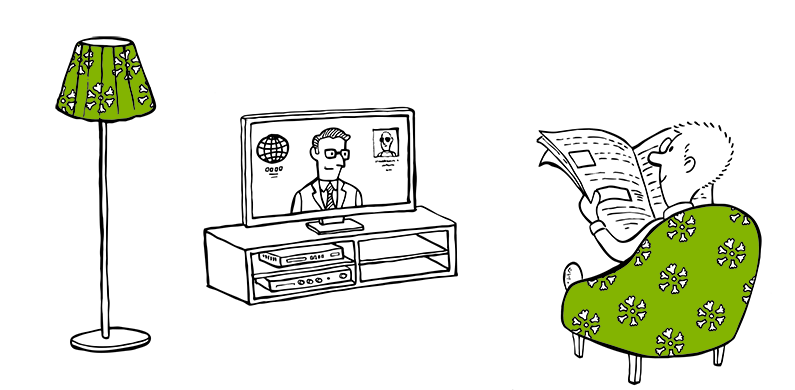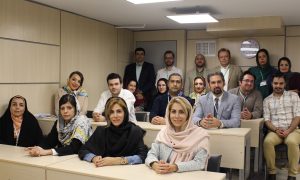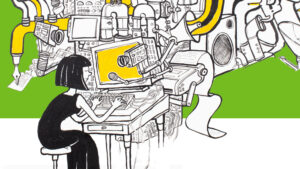
“With the Slogan of Self-Sufficiency, We Have Closed International Markets to Ourselves” 
The country’s economy has fallen into crisis, and many businesses face challenges and are seeking solutions. Naser Pashapour Niko, an entrepreneurial leader and CEO of the dnaunion group, said at the press conference titled “Examining Business Opportunities in the Recent Economic Crisis,” held with the presence of economic reporters from various media outlets:
“The country’s economy has entered a critical condition. However, the crisis is not permanent and will eventually end. The important thing is how businesses emerge from it. In these conditions, businesses divide into different groups. Some businesses completely feel hopeless and see themselves drowned in the crisis or try to merge with stronger businesses. Various examples of this can be cited, such as the merger of Taj with Henkel Paksh and others. Meanwhile, some groups seek opportunities and try to fish in the troubled waters of the crisis. Such brands do not remain after the crisis and move on to other fields. Another group of businesses constantly search for solutions and examine different strategies. This group not only exits the crisis but also grows afterward. These last businesses have a correct understanding of market changes, their competitors, and consumers. They have adopted an offensive strategy instead of a defensive one.”
Unity Is the Most Important Factor in a Crisis
Pashapour Niko continued: “In addition, businesses that think about unity during a crisis choose a more correct path. They consider exports as a source of income and consistently seek a stable market. Product development is another strategy implemented by successful businesses. Brand enhancement is another factor that businesses must pay attention to because, after the crisis and the return of foreign businesses, Iranian businesses will be defeated by the strong branding of those competitors. The crisis is the best time to prepare the infrastructure of businesses. At this time, competition is low and market demand for products is high. So, the crisis is not just a threat; if we look at it correctly, we will also find good opportunities. Opportunities that come from experience and reviewing previous crises — an experience that leads to progress.”
“This process caused many powerful countries in the world to start exporting their goods as ‘war soldiers.’ Soldiers that have entered Iranian lives, with each home containing several such soldiers. Now, if our country also viewed businesses as soldiers, it would no longer allow them to operate only domestically and would require them to be active abroad as well. Therefore, the strategy of self-sufficiency during a crisis is not effective, and we must turn to exports. On the other hand, Iranian brands have no advantage for export.”
Building Trust During a Crisis
Gerhard Barkus, CEO of Certius and a board member of dnaunion, another speaker at the conference, spoke about the condition of banks during a crisis:
“The most important factor that banks must focus on during a crisis is building trust. Only through this factor can they attract people’s capital toward themselves. On the other hand, they must move toward electronic banking to reduce costs. This method of banking will also benefit customers. However, banks often pursue short-term strategies that yield quicker results. Companies need to implement more organized strategies during a crisis. They must compete for empowerment. If a company is not in a competitive and comparative environment, it sees no need for advancement.”
Motivation to Compete in an Open Economic Environment
Barkus added: “When a country’s borders are closed, there is no motivation for competition among businesses. In such conditions, focusing on producing valuable products is more important than focusing on the product’s price. However, it should be noted: the values created in Iranian products are not those for which Iranian consumers want to pay. The values created by foreign brands are unrelated to quality; they invest time in packaging, sales methods, marketing, and so forth. Meanwhile, foreign brands can add to their values during a crisis.”
“Also, businesses show three reactions during a crisis. One group worries about securing their raw materials. The second group is happy about the sanctions and thinks they can sell their products more easily in this situation. This group must realize that customer demand changes, and they should not be pleased with the situation. The third group thinks about growing their business. Such businesses seek experience, strengthen their infrastructure, and aim to build their brand. For example, when olive oil produced by Spain was packaged and marketed through Italy, Italy gained the most profit. Spain addressed this problem by focusing on branding and packaging and resolved it.”
Brand Building During a Crisis
Mohammad Mousavi, CEO of Ertebat Tasvir Eshareh Company and board member of the group, noted that few businesses pursue branding during a crisis:
“Neglecting branding has caused many small businesses in Iran to vanish after the crisis. Such businesses are not good investment options post-crisis. Businesses that prioritize branding not only come out of the crisis but also remain sustainable afterward. Building a strong brand during a crisis is extremely important. In this regard, creating brands in areas where foreign competitors have not entered is also vital. Some sectors, such as detergents, have created space for strong brand building by businesses. Keep in mind, exporting foreign brands also strengthen their products after the crisis. In any case, the crisis has just begun, and many businesses are monitoring their operating environment. They are planning to face the crisis. Since the topic of Iran’s exit from the JCPOA was raised, the crisis issue became prominent. Three months have passed since then, and our businesses are not agile enough to plan and execute so quickly. For now, they are trying to secure their raw materials and currency. Therefore, judging business performance during the crisis is premature. They have not yet evaluated the situation and must think about planning. They must be careful that when the crisis ends, competitors do not take their place in the market. Poor performance of our businesses during previous crises has caused no changes in the status of pistachio, saffron, or Iranian carpets. Brands must act cautiously during a crisis.”





